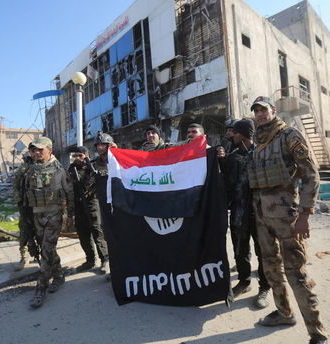Seized documents reveal Islamic State’s Department of ‘War Spoils’
Islamic State has set up departments to handle “war spoils”, including slaves, and the exploitation of natural resources such as oil, creating the trappings of government that enable it to manage large swaths of Syria and Iraq and other areas. The hierarchical bureaucracy, including petty rivalries between officials, and legal codes in the form of religious fatwas are detailed in a cache of documents seized by U.S. Special Operations Forces in a May raid in Syria that killed top IS financial official Abu Sayyaf.
This really kind of brings it out. The level of bureaucratisation, organisation, the diwans, the committees.
Brett McGurk, President Barack Obama’s special envoy
The documents also show how “meticulous and data-oriented” IS is in managing the oil and gas sector, although it is not a sophisticated operation, said Amos Hochstein, the State Department’s top official for energy affairs. U.S. officials said the documents have helped the anti-IS coalition to pinpoint vulnerabilities. Many of the seized documents are fatwas, or religious rulings, covering issues from rape of female prisoners and the treatment of slaves with minor children to when it is permissible for a son to steal from his father to fund travel to fight jihad, or holy war. The fatwas also cover who allowed to have sex with which women prisoners.

World Islamic State fatwa